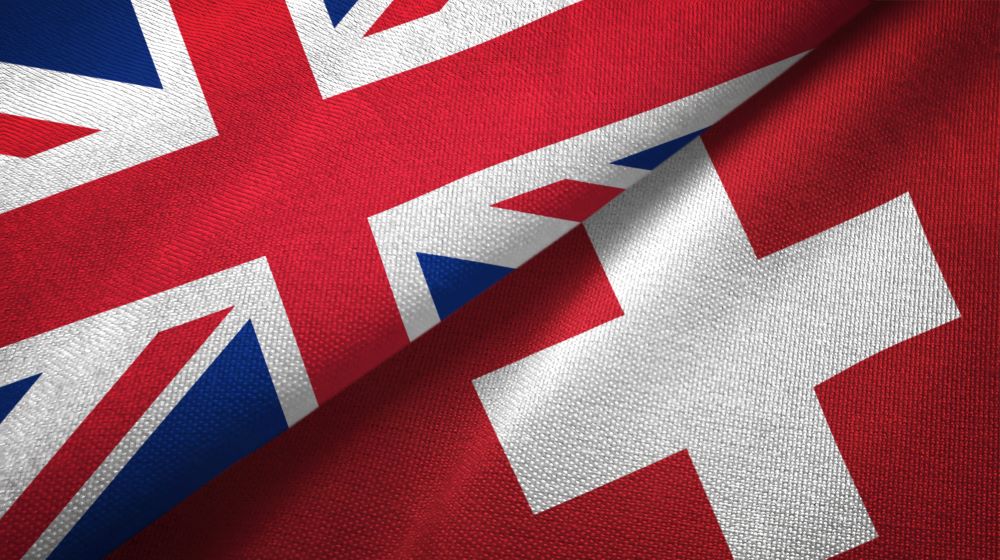 The UK has started work on a new enhanced trade deal with Switzerland with hopes it will break down barriers to allow UK services to access the Swiss market.
The UK has started work on a new enhanced trade deal with Switzerland with hopes it will break down barriers to allow UK services to access the Swiss market.
Boris Johnson hosted Swiss president Ignazio Cassis for bilateral talks in London yesterday as the Department for International Trade launched an eight-week consultation calling on businesses and the public for their views ahead of negotiations.
Although UK businesses benefit from tariff free trade on most goods under the existing trade agreement rolled over from the EU, the current deal does not cover services, which account for more than half of the £35bn value of trade, the government said.
‘Services superpowers’
International Trade Secretary Anne-Marie Trevelyan said an enhanced trade agreement with the UK’s 10th largest trading partner would unlock new opportunities for the services sector.
“As two services superpowers, we have a huge opportunity to negotiate a modern, ambitious, unprecedented deal that will boost both our economies and show the world what is possible between two like-minded and innovative nations who are firmly within Europe but outside of the EU,” she said.
In 2020, the UK was the second-largest exporter of services to the world, with exports worth £266.8bn. Switzerland was 12th largest, with £89.6bn.
Digital trade rules
The government said the deal would help set new rules and standards for digital trade and cover future industries such as digital trade, innovative services, and green growth, as well as supporting trade in finance, legal services, consultancy, tech, and the creative industries.
Nicola Watkinson, managing director, international trade and investment at services professional body TheCityUK said the UK and Switzerland would gain “by setting a new gold standard for services trade between two sovereign nations”.
“In the long term, a free trade deal with Switzerland will complement wider progress towards mutual recognition, and can be used as the model for new-generation trade deals with other partners worldwide,” she added.
Politico reports that the services sector is “licking its lips at the prospect of a trade renegotiation” as services make up more than 70% of both their GDPs.
‘Mutual recognition is best’
“It’s one of those places where a trade deal could make a real, material difference,” said Sally Jones, trade leader at EY. “There’s no reason, given the nature of the two economies, why both sides couldn’t operate at a pretty generous market access offer and come to a deal pretty quickly.”
She said an agreement that accepted mutual recognition on regulations would be better than an EU-inspired equivalence deal.
Britain and Switzerland have a short-term mobility agreement allowing travel for 90 days visa-free, but given its 24-month expiration date, firms want it extended or made permanent.



